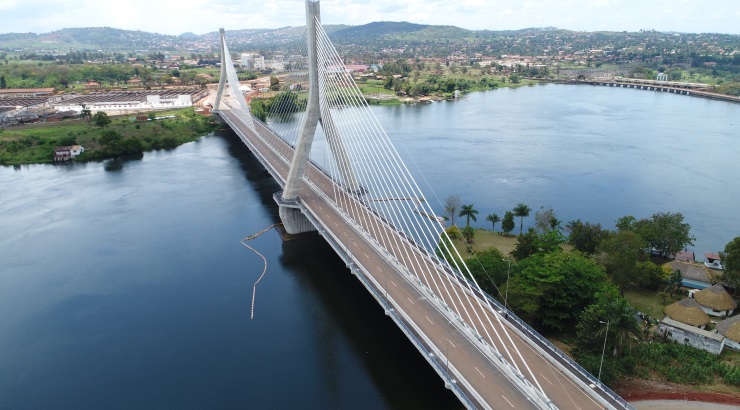World Science Day For Peace And Development 2020: Why Africa Needs To Pay More Attention To Science Development


Ever done something so easily that you pause to wonder what the world would look like without science? Imagine a world without light bulbs, automobiles, mobile phones, drugs, refrigerators, the list goes on. Science has made life a lot easier and better. To celebrate science and its impact, November 10th of every year has been set aside as World Science Day for peace and development.
The World Science Day for peace and development is an international day that highlights the essential impacts of science in society. Also, it elaborates on the need to involve a wider public in debates affecting emerging scientific issues. The world science day was introduced by the United Nations Educational, Scientific, and Cultural Organization (UNESCO) in 2001. However, its first celebration was in 2002. Today, it has become a global event with millions of audiences.
The Theme for World Science Day 2020
The theme for this year’s World Science Day is “Science for and with Society“. This theme comes at a time when the world is dealing with a coronavirus. From the scientific point of view, UNESCO’s response to COVID-19 is on three thresholds: promoting international scientific cooperation, ensuring access to water, and supporting ecological reconstruction.
The World Science Day aims to draw attention to emerging scientific issues like renewable energy and Artificial Intelligence. However, the celebration also hopes to inspire more people to participate in scientific activities. The theme for this year’s celebration further highlights the importance of collaboration. Speaking about the celebration, the Director-General of UNESCO, Audrey Azoulay said,
“Open Science seeks to make scientific information, knowledge, and data available to all. By increasing access to information, it aims to give all scientists, innovators, engineers, entrepreneurs, and citizens the opportunity to observe, contribute and create knowledge in the fields of science, technology, and innovation. Not only does this approach boost transparency and accountability, it helps create equal opportunities for all, by encouraging engagement with scientific culture.”
Why Africa Need To Pay More Attention To Science Development

There were traces of scientific methodologies and discoveries in Africa even before European colonization. Sadly, Africa is now trailing behind. Subsequently, Africa needs to maximize its natural wealth and human resources. This is crucial for Africa to be at par with the rest of the world. For the past 300 years, the western world has been able to invent more. Consequently, every invention pushes them farther in civilization.
Today, basic amenities are readily available in developed worlds. Thus, making the quality of their life better. Sadly, many African nations still struggle with basic amenities like electricity. Therefore, it is safe to say that scientific development is synonymous with wealth creation. Africa must strive to manufacture their technologies. Perhaps, this is the only way the continent can provide jobs for the teeming young population.
Africa needs to collaborate with developed countries to improve science. Also, Africa has lots of young talents creating mindblowing products with limited resources. However, in the absence of an enabling environment and government support, they quickly run out of the zeal to keep going. Africa can become self-sustaining like China. However, science and technological development must be at the heart of that journey.
Women in Science in Africa

The active participation of women in any society is key to its growth. In Africa, women are usually saddled with the task of training the children. Therefore, if Africa must move forward in science, it is imperative that more women should follow this path. In sub-Saharan Africa, only about 33 percent of science graduates are females. A large number of activities are reserved for men in Africa. Sadly, the majority of these activities are science-related.
Statistically, women make up only 30% of sub-Saharan researchers in all fields. Over the years, there have been minor improvements to this figure in countries like Rwanda, South Africa, Nigeria, and Ethiopia. However, most women who venture into science remain in junior positions. This denies them the power to join in making major decisions or take up leadership roles.
On the bright side, initiatives geared toward boosting women’s participation are rapidly coming up. One of these initiatives is the UNESCO Science, Technology, Engineering, and Mathematics (STEM) advancement also known as SAGA. This initiative seeks to keep a record of gender statistics. It will also enforce policies relating to gender equality as regards science.
The Objective of World Science Day 2020
Other initiatives worthy of mention are the higher institution for growth in health research for women; the boardroom Africa; science, technology, and innovation strategy for Africa 2024 amongst others. The need for scientific development in all countries across Africa cannot be overemphasized.
UNESCO has four vital objectives for the World Science Day celebration. If Africa can aim to achieve these objectives, it could be the beginning of the turnaround of the continent’s fortune. According to Twinkl, the UNESCO objectives are as follows:
- Strengthen public awareness on the role of science for peaceful and sustainable societies
- Promote national and international solidarity for shared science between countries
- Renew national and international commitment for the use of science for the benefit of society
- Draw attention to the challenges faced by science and raise support for the scientific endeavor
One thing is certain, Africa needs to take the study of science more seriously. The world is advancing at a tremendous rate and Africa cannot afford to be left behind. Therefore, the study of science should begin at a young age. The introduction of science to children across Africa usually happens late. Thus, it becomes strange and difficult for them to comprehend. Hopefully, the wide adoption of World Science Day will help to correct this.







Responses